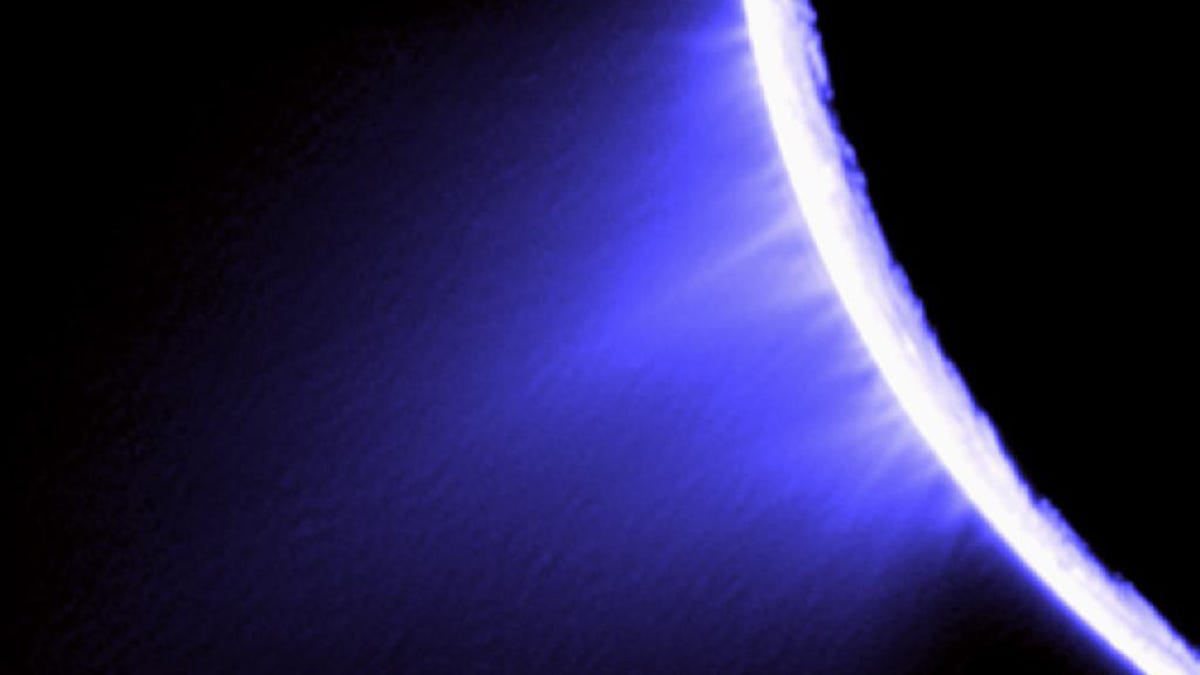What we expect from NASA's 'oceans beyond Earth' news
The space agency has found something intriguing at a moon in the outer solar system that could influence our plans for visiting. Tune in Thursday.

Icy jets spurting from Enceladus' surface
NASA will reveal some new science later this week about ocean worlds in our solar system. I've reviewed the research, but I'm not allowed to share it until the space agency makes its announcement at 11 a.m. PT on Thursday. I can tell you it's exciting, but it's not about aliens.
We don't really have the technology near the ocean worlds in question -- Jupiter's moon Europa and Saturn's moon Enceladus, among others -- to confirm beyond a doubt that anything is alive in their subsurface seas. When the Cassini probe was launched nearly 20 years ago, it was not equipped with instruments to detect life. NASA reminded us of this when the spacecraft dove through a plume shooting forth from Enceladus in 2015.
This is probably why NASA also plans to use the Thursday press conference to talk about its upcoming Europa Clipper mission. The spacecraft is set to make numerous fly-bys in the 2020s of the Jovian moon that may also play host to plumes shooting into space from a hidden ocean beneath its icy shell.
NASA has also been working on a possible lander for a Europa mission in recent years, though President Donald Trump's proposed NASA budget cuts funding for the lander. We'll see if lawmakers think better of that move after the news drops Thursday.
You can catch NASA's announcement live on Thursday right here via the embedded video feed below.
Crowd Control: A crowdsourced science fiction novel written by CNET readers.
CNET en Español: Get all your tech news and reviews in Spanish.

